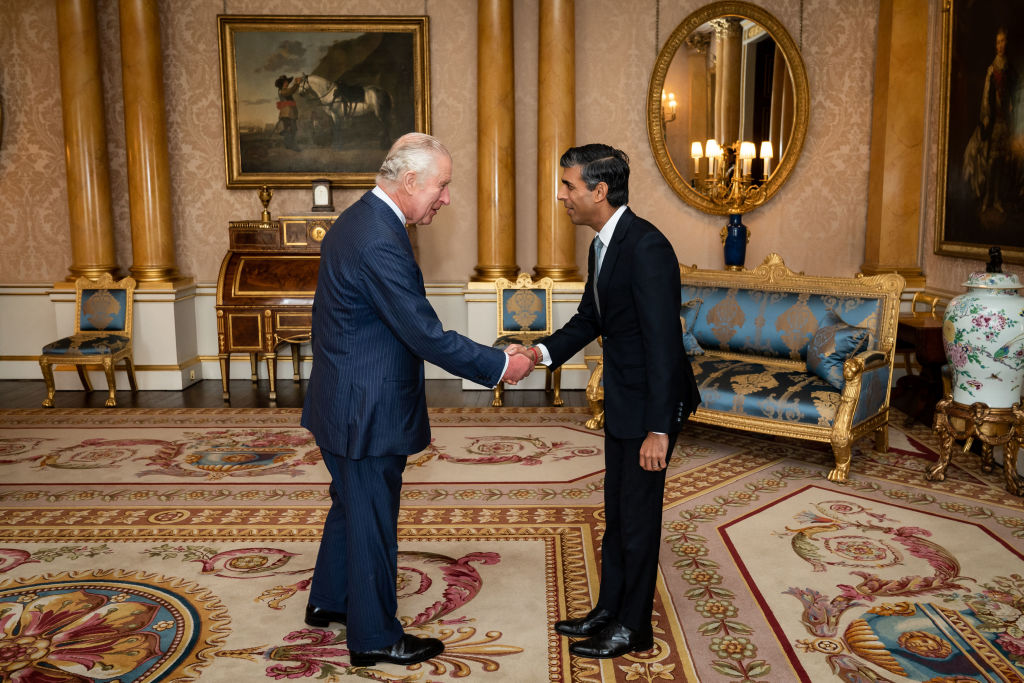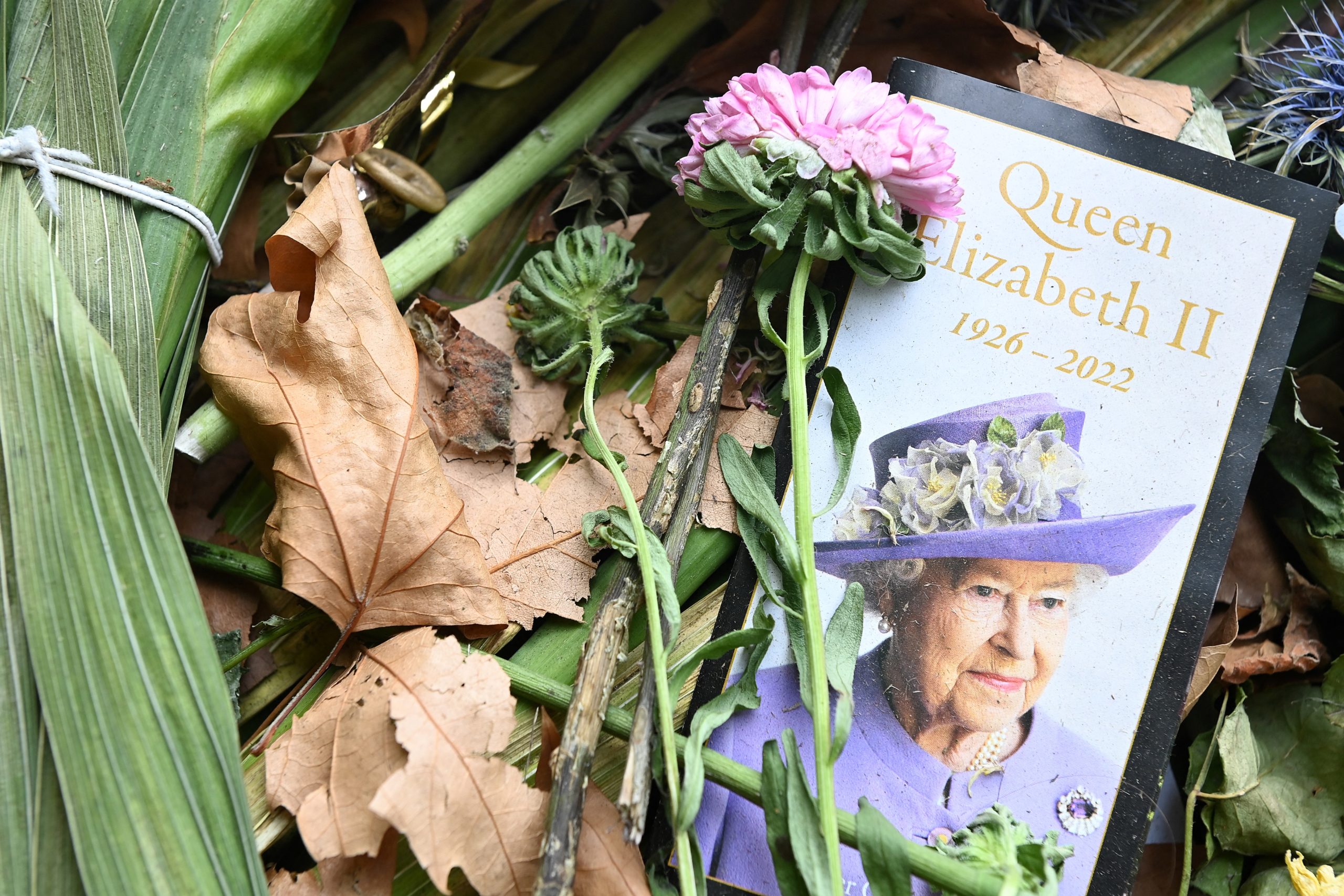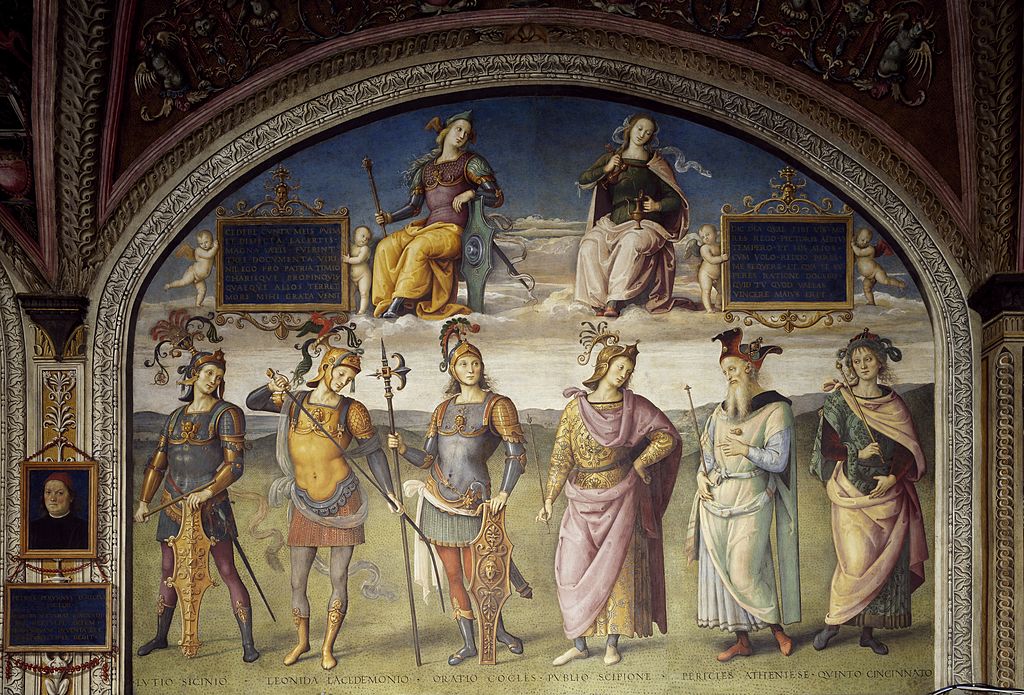Elizabeth II understood her duty—do we?
England in Crisis

Britain faces major challenges.
Americans know less and less about the world, even as a vapid but increasingly aggressive global humanitarianism becomes the default position of our intellectual and political classes. While one still hears talk about “the special relationship” that was long said to exist between the United States and the United Kingdom, Americans seem not to have noticed that a stance of stoic composure, the “stiff upper lip” of legend, has not defined the British character for a long time now. In “The Lion and the Unicorn,” a justly famous essay written in the midst of the Battle of Britain, George Orwell noted that with the exception of a small group of intellectuals who had succumbed to “totalitarian power worship,” the English, while hardly a pious or religiously devout people, had held on to the old decencies, were quietly but steadfastly loyal to country, and could hardly be taken in by the deadly abstractions proffered by Communism and National Socialism. At the Oxford Union in 1933, a group of fabulously “privileged” students, as one says today, voted never again to fight “for King and country.” But almost all of them would fight in the great conflict that was World War II to save British liberty and Western civilization.
That England is largely no more. Winston Churchill, like Margaret Thatcher and the recently deceased journalist/historian Paul Johnson, is far more esteemed in the United States than in the country of his birth. He has been disowned by Churchill College, an institution that maintains his papers, while sponsoring conferences assailing this paragon of magnanimous statesmanship as a racist imperialist, representative of everything in British history that deserves to be repudiated and loathed. Margaret Thatcher was never invited to speak at Oxford University, even as she was one of its most famous graduates. Her recovery of a vibrant market economy and her esteem for the “vigorous virtues and values” of old won her the contempt of the demi-educated classes. If Orwell’s England was still residually Christian, the Britain of today is openly post-Christian, and even aggressively so. The Church of England is now committed to blessing same-sex marriages and has announced its determination only to use gender-neutral language in its liturgy and official statements and publications. One wonders what will happen to the Fatherhood of God and Jesus’ unique status as “the Son of God” in this new dispensation. As the Anglican Church grows ever more woke, the number of its adherents declines into insignificance. We are witnessing nothing less than willful self-destruction.
In the new Britain, social conservatism is passé and in an increasing number of cases, has been criminalized as a hateful manifestation of “homophobia” and “transphobia.” One can count on one hand the number of openly pro-life politicians. As Daniel Hannan recently argued, Britain’s conservative governments led the way in championing the new morality and in ratifying a secular religion centered on fighting “climate change” that is hardly informed by empirical evidence and open to legitimate scientific and political debate.
Can the British monarchy itself long survive this new climate—anti-traditional, tinged by wokeness, and rather too contemptuous of what Churchill famously called in his “Finest Hour” speech of June 18,1940 the noble and necessary “continuity” of civilization and of British liberties and institutions? The 2006 film The Queen, starring the exquisite Helen Mirren, perfectly conveyed an atmosphere of hysteria and social contagion where public opinion, propelled by therapeutic emotivism and a media with little or no sense of civic responsibility, demanded that the dutiful and public-spirited Queen Elizabeth II become more like the deceased Princess Diana, wearing her feelings on her sleeve and expressing herself with reckless abandon. The real Diana herself had little sense of civic responsibility and was hardly more devoted to charitable causes than other members of the royal family. Yet a cult grew around her. In truth, she was a troubled woman, a celebrity rather than a public servant. Queen Elizabeth II carried on, making a few adjustments to the demands for a new “openness,” but was otherwise a model of decorum, unforced patriotism, and a decency that would have been more widely admired in an age less enamored of self-expression and the cheap display of feelings. Upon her death last year, untold Britons felt in themselves and acknowledged what a treasure of dignity and “continuity” they had in their midst all along.
The deeply troubled and self-indulgent Prince Harry stands out among those left, but as more the exception than the rule. His wife, the American Meghan Markle, a two-bit self-absorbed former actress contemptuous of tradition and moral authority, has schooled him in contempt for “empire” (the evil of evils according to the woke catechism), tradition, and his own family’s example of public duty and public service. Fewer and fewer people have the time of day for his whining and addiction to politically correct clichés.
In his classic 1867 work, The English Constitution, the English political essayist and founding editor of the Economist, Walter Bagehot, made the distinctively modern case for monarchy within the regime of modern liberty. In this connection, it is important to recall that England was the first regime of modern liberty, highly esteemed by thinkers as different as Voltaire and Montesquieu. Its staid manners and sometimes lackluster cultural achievements coincided with an admirable form of political liberty. This was marked by the uninterrupted peaceful transfer of political power since 1688, representative institutions, free commerce, intellectual freedom, and the full range of civil and religious liberties. While Americans are a self-consciously republican people, marked by what Federalist 66 called a distinctive “republican genius,” we owe a great debt to the rights of Englishmen that were passed on to us. These gave rise to a more fulsome proclamation of natural rights in our Declaration of Independence in 1776. But that inheritance was, and remains, invaluable. And on our own political principles, we have no reason to oppose constitutional monarchy for the British or any other self-governing people. The Declaration did not oppose George III for being a king but for acting increasingly like a tyrant in relation to the American colonists. That distinction is crucial.
Bagehot eloquently argued that the modern British monarchy represented the “dignified” or “ceremonial” part of the English constitution. It could readily be understood by ordinary people while representing the unity of the nation and carrying out “ceremonial” tasks of state. The “efficient” part of the constitution—Parliament, the cabinet, and the Prime Minister—embodied the operative part of the constitution that governed the country on a day-to-day basis. Thus, under the English constitution, the old and new, the “gothic” and the self-consciously modern, were brought together in a way that married otherwise disparate elements: tradition and modernity, the august and the relatively simple and “efficient.” But to maintain “the charm of royalty,” to do its work, the King or Queen must stay out of politics and “be reverenced by all the combatants.” Bagehot adds the oft-quoted phrase: “We must not let in daylight upon magic.” Ostentatious displays of familiarity are incompatible with the dignified part of the constitution remaining “dignified.” The royal family as a family ought also to reflect and embody decency, self-restraint, and self-respect. Alas, Diana, Andrew, and Harry hardly reflect the modern traditionalism that Bagehot so effectively advocated. Bagehot’s basic intuitions are completely alien to them.
As Carl Trueman, an American citizen who was born in Britain, has recently argued at First Things, King Charles’ decision to include an LGBTQ++ choir in his coronation radically undermines the case for monarchy. It is in fact an ostentatious moral and political statement by which the monarchy sides with anti-traditionalist social progressivism. It puts identity politics above the unity of the nation. As Trueman rightly observes, the monarchy long flourished precisely because, until quite recently, it “was not subject to the tastes of the day or the ascendent lobby group.” By undermining this crucial prerequisite of modern monarchy, Charles “himself seems determined to make the republican argument in a more powerful form than we have seen for many years.” With Trueman, I refuse to believe that the delegitimization of the British monarchy would aid the cause of civilized liberty in the late modern world.
I do not mean to overstate the point. Britain is hardly on the verge of collapse and her institutions remain intact. There are still not a few Brits who value the wisdom of old. But the mixture of sound tradition and sober modern liberty which was the glory of Britain is much diminished. That is surely a loss for all of us who value sturdy constitutionalism, and not just the citizens of the United Kingdom, the first home of modern liberty in the world.
The American Mind presents a range of perspectives. Views are writers’ own and do not necessarily represent those of The Claremont Institute.
The American Mind is a publication of the Claremont Institute, a non-profit 501(c)(3) organization, dedicated to restoring the principles of the American Founding to their rightful, preeminent authority in our national life. Interested in supporting our work? Gifts to the Claremont Institute are tax-deductible.
A prudential reading of a prudent statesman.
Meghan Markle obsesses us because she is a symbol of our willful degeneration.



